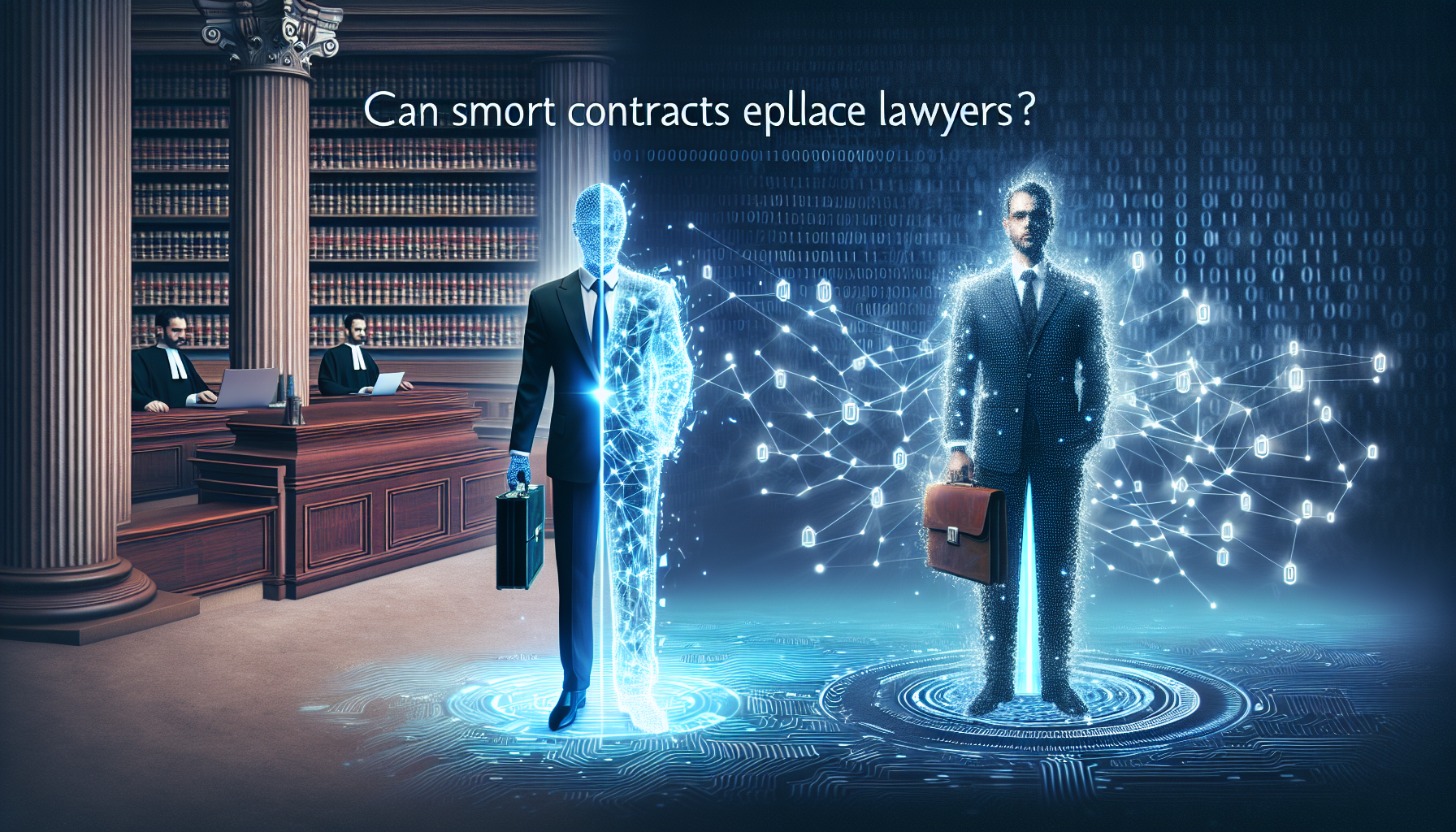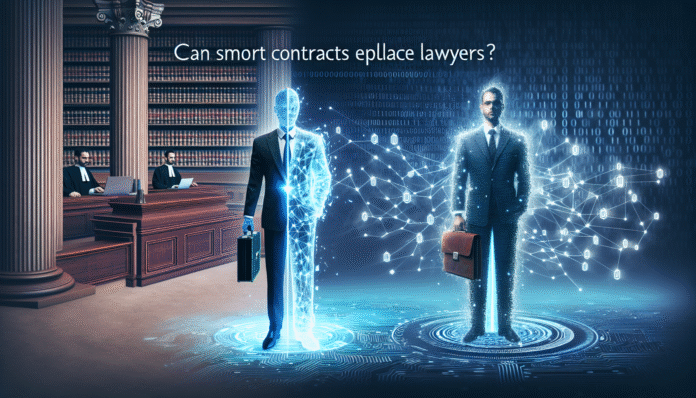In a world increasingly run by code and algorithms, it’s no surprise that even legal agreements are going digital. Enter smart contracts — a revolutionary technology built on blockchain that has the potential to disrupt not just how we do business, but who we need to involve in the process.

What Exactly Is a Smart Contract?
A smart contract is a self-executing program that automatically enforces the terms of an agreement. The contract’s rules and outcomes are written into lines of code and stored on a blockchain — a decentralized, tamper-proof digital ledger.
Imagine renting an apartment: Instead of signing a paper lease and trusting a landlord to hand over the keys, a smart contract could release a digital key automatically once your payment is verified on the blockchain. No middlemen. No delay. No miscommunication.
The Genius Behind the Code
The concept of smart contracts was introduced by computer scientist Nick Szabo in the 1990s, well before blockchain existed. But it wasn’t until platforms like Ethereum came along that the technology became viable.
Here’s how it works in a nutshell:
- A developer writes the logic for a transaction into code (e.g., “If X pays Y amount, then Y delivers product”).
- This code is deployed on a blockchain.
- Once the conditions are met, the contract executes automatically.
Smart contracts are immutable and transparent. Once deployed, they can’t be changed without consensus — making fraud, manipulation, and disputes much harder to pull off.
Why Smart Contracts Are a Big Deal
Smart contracts cut out the middle layer. Traditionally, lawyers, notaries, banks, and even judges have served as intermediaries in enforcing or verifying agreements. With smart contracts, code replaces the need for trust — and potentially, for intermediaries altogether.
Here are a few reasons why that’s such a big deal:
1. Speed
Smart contracts execute instantly once conditions are met. There’s no need to wait for a lawyer to review documents or a bank to clear a payment.
2. Cost-Effectiveness
Without middlemen, the fees associated with traditional contracts — legal fees, administrative costs, notary charges — are drastically reduced.
3. Accuracy
Because everything is based on code, smart contracts are less prone to human error. You get exactly what was programmed — nothing more, nothing less.
4. Security
Stored on blockchain, smart contracts are nearly impossible to tamper with. Their decentralized nature means no single party has control.
5. Trustless Transactions
Smart contracts don’t require you to know or trust the other party. The code ensures compliance from both sides, automatically.
Could Smart Contracts Replace Lawyers?
In some cases — yes. Routine legal tasks like writing NDAs, processing transactions, or managing wills and inheritance can be coded into smart contracts. Platforms are already emerging that let you create and deploy these contracts without writing a single line of code.
However, smart contracts aren’t a complete replacement for lawyers just yet. They struggle with:
- Complex, nuanced agreements that require interpretation or context.
- Dispute resolution in the event of an error or unforeseen situation.
- Regulatory compliance, especially in different legal jurisdictions.
Rather than eliminating lawyers, smart contracts are more likely to transform their role — from drafters of documents to advisors and auditors of code. Future lawyers may need to speak fluent code alongside legalese.
Real-World Examples
Smart contracts are already making waves across industries:
- Finance: DeFi (Decentralized Finance) platforms use them for lending, borrowing, and trading without banks.
- Real Estate: Automating property sales, lease agreements, and escrow.
- Supply Chain: Tracking goods and triggering payments based on delivery status.
- Healthcare: Managing consent forms, insurance claims, and patient data access.
Final Thoughts
Smart contracts mark a major shift in how we think about agreements. They’re fast, secure, and efficient — offering a glimpse of a future where bureaucracy is replaced by automation. While they won’t replace lawyers overnight, they will force the legal industry to evolve.







